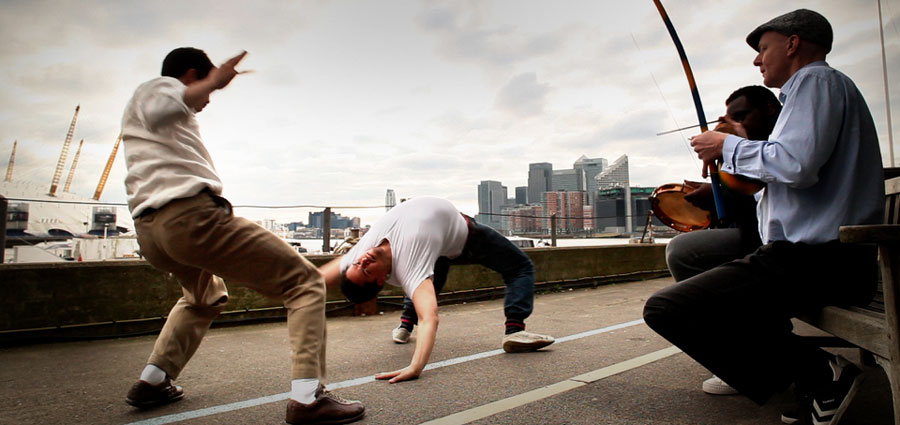Capoeira has always been rich and beautiful. We find everything in capoeira: life philosophy, self-defense, art and culture. We find part of religion in capoeira if we seek it. The word religion means ‘to re-link oneself,’ so everything to which we link ourselves would be a religion. We shouldn’t learn capoeira in order to cause trouble with it, but instead use it in the hour of defense when necessary. After all, in its life philosophy capoeira is love, celebration, and also joy.
What is Capoeira?
Capoeira is a game between two people. It’s like a game fight to music & song with skill, strategy, dance, and acrobatics. Playing capoeira involves a spontaneous and spectacular exchange of non-contact attacking and defensive movements, where the two players try to create an opportunity to trick, trip or show they could kick their partner. There is no official winner but players and spectators will each decide who played the best game!
Capoeira combines dance, martial arts, music, drama, acrobatics, socialising and much more. Capoeira is an Afro-Brazilian artform that was born out of the struggle for freedom of the slaves in Brazil. It’s origins are old and now it has evolved and spread across the world in a variety of styles and movement philosophies (see Cultural London and capoeira below).
Cultural London and Capoeira
It’s difficult to find any culture not represented in London’s busy streets or quiet suburbs. A wide diversity of age, race, colour and culture is here and has claimed a little piece of London as its own. This now includes Capoeira.
Capoeira has been here continually since the late 80’s and has many different styles, groups and flavours. A unique scene has developed in London largely due to the Urban Ritual rodas that can see masters, teachers, students, friends and family joining together from different groups to play this Brazilian fight game. Great contribution has been made by the street rodas of Brick Lane, Camden Lock, Liverpool Street and Southbank.
Capoeira is here. It’s being played in the streets, it’s being used in contemporary dance, it influences film, street dance and other fighting systems, and it is practised by many to help balance their normal life.
London’s diversity can now be seen within its own capoeira scene.

